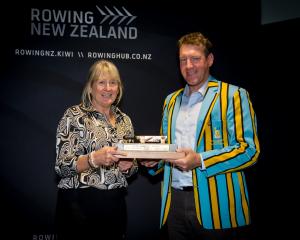Removing a step on rowing’s high-performance pathway may help return the "heart and soul" to club rowing.
But it could take years to return to what it was.
That is the view of North End Rowing Club captain and coach Dave Hanan on the closure of Rowing New Zealand’s regional performance centres.
The RPCs have operated over the past 20 years, providing a centralised training set-up at the level beneath the national programme at Lake Karapiro.
However, as the environment has changed and sustainability issues struck, Rowing New Zealand announced earlier this year it would end them.
That will mean rowers who had to leave Dunedin for the Christchurch-based Southern RPC will once again remain to train in the city.
Hanan said the move was a good one for club rowing, as he felt the RPCs had been detrimental to the sport at a grassroots level.
"I actually think what the RPCs have done over the last 10 to 15 years has ripped the heart and soul out of club rowing," he said.
"When I was doing club rowing and was training to become an elite athlete, I looked around me to those who were in my club and better than me.
"They were people I’d aspire to be like.
"What the RPCs effectively did was they removed all those guys who were any good, which really effectively left no-one for young people to aspire to in rowing clubs."
He said beneath the top group, there was little depth in New Zealand rowing.
That meant that although the RPCs were intended to take the elite rowers beneath the national squad, they were taking "anybody that was half-pie decent".
It left the clubs with low numbers and he said regattas were down to 700 rowers where prior to the RPCs they could have more than 2000.
He said having the RPC rowers at home might encourage more to stick with the sport as well.
Otago University Rowing Club CEO Glen Sinclair also felt the move would keep others on the water.
"For everyone you took away [to RPCs], you might lose three athletes from the sports," Sinclair said.
"There’s other athletes saying ‘I’ll row because I get to row with Jimmy’.
"But then well ‘Jimmy’s not there, he’s gone, there’s no-one really good in our team, we’re not going to row’.
"So, hopefully, that might come back a bit."
Sinclair felt the RPCs had their place, although he felt they should have been a winter programme.
That was where the gap in the sport was, as the summer club had been strong, but coaching year-round became too much for volunteers, he said.
The winter season was when the Otago University club operated and Sinclair was looking forward to continuing to strengthen that.
However, Otago was the only university that operated as a stand-alone club, meaning the winter gap might still exist around the country.












